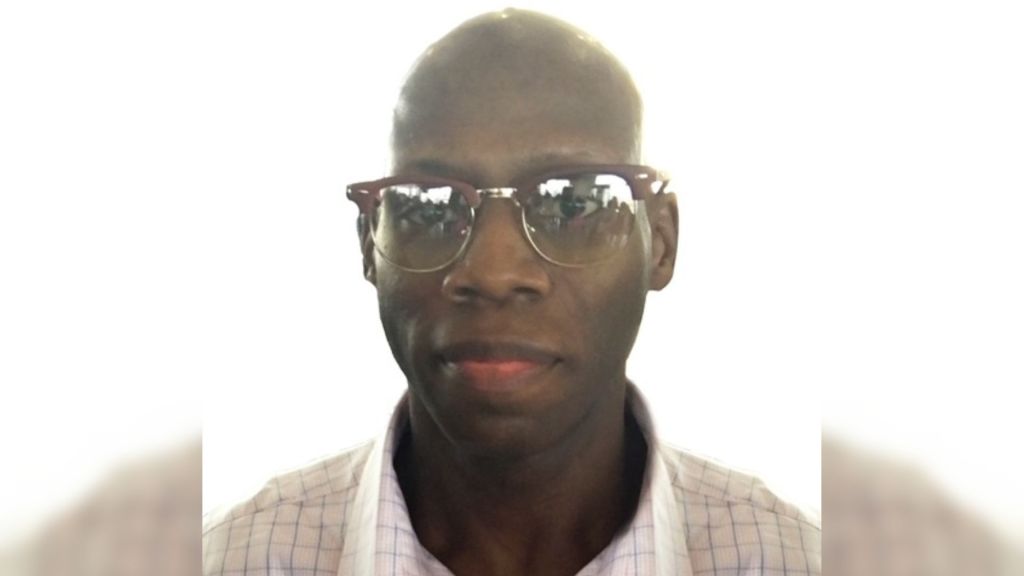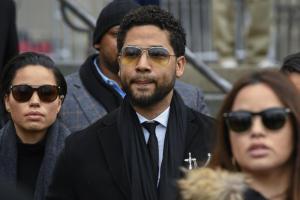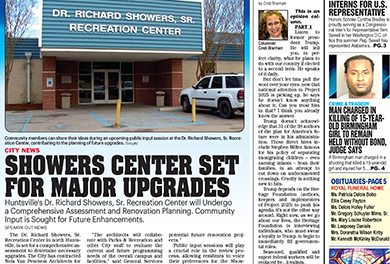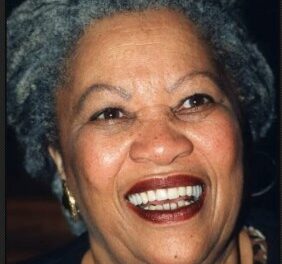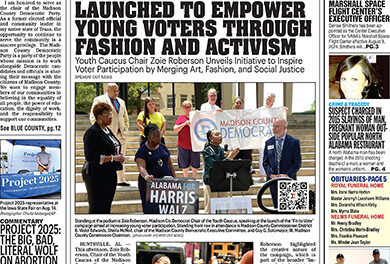By Jamie Seals
Many parents across America wake up, go through their day, and go to sleep, consumed with the same overwhelming thought: “What about my child?”

Credit: Courtesy photo
Parents, caretakers and those charged with guiding, directing, shaping, molding, developing and protecting human life ask that same question. My mother has reminded me daily as an adult that regardless of my age, stature, abilities or capabilities, I will “always be her baby,” which will always cause her to be concerned for my well-being as she thinks to herself, “What about my child?”
Suppose you are an individual fortunate enough to experience the joys, pains, struggles and sense of gratitude that comes from being a parent. In that case, your child will always be your baby, even as they mature and grow into adulthood.
“What about my child?” is a statement, feeling and concern that crosses and touches all humanity regardless of our religious beliefs, economic status, educational background, gender or ethnicity. Numerous individuals from what can be viewed as marginalized communities grapple with the harsh realities, thinking to themselves, “What about my child?” Moving to the realization in many aspects of their child’s life that their reach isn’t long enough, and their span of power and control is limited, which causes many parents to feel a sense of helplessness and hopelessness. At the same time, they whisper to themselves, “What about my child?”
As literacy rates plummet, educational tax dollars spent on pupils in urban areas decrease, affordability and opportunities for higher learning dwindle, the average American’s debt continues to skyrocket and inflation continues to outpace our take-home income– stifling and suffocating our dream of homeownership, which could lead to generational wealth. We all still find ourselves saying, “What about my child?”
Ideally, as parents, we would always be able to shield our child from any harm, the harsh realities of life, and the hard times that come from the gift of living because we love our child even if the world at large doesn’t. Since traces of racism, misogyny, and classism are still present, many parents are still saying, “What about my child?”
In the Holy Bible and the Quran, the story of Moses says that his mother, Jochebed, floated him in a basket on the Nile River to save him from Pharaoh’s decree to kill all newborn Hebrew boys. She did this because she said to herself, “What about my child?”
On Dec. 1, Democratic President Joe Biden, in his last full month in his elected office, thought to himself, “What about my child,” as he looked to protect his son, Hunter Biden, from the possible punishment our American judicial system may have assigned to him at his sentencing date for crimes he plead guilty too. He provided his son, Hunter Biden, a complete and unconditional pardon from any offenses against the United States that he has committed or may have committed or taken part in from Jan. 1, 2014, through Dec. 1, 2024.
As president of the United States of America, President Joe Biden has a long reach and spear of power and control that the everyday US citizen could only dream of. Unlike the average American, President Biden can and will always be able to do more than to be left thinking and saying “What about my child?
For years in the past, before having a change of heart, it was then-Senator Joe Biden who advocated for harsher and stricter sentencing for those found guilty of dealing drugs. At the time, Senator Biden labeled drug dealers as violent thugs, and he urged for higher numbers of incarceration without ever once thinking that someone else would be left feeling and saying, “What about my child?” Senator Joe Biden not only advocated for stricter sentencing, but he also wrote laws that assisted the judicial system in developing more of a punitive system.
Life experiences have or will teach us all never to look down on humanity unless we are trying to pick it up. President Biden, through his son Hunter Biden, learned humility. President Joe Biden once believed that individuals who sold or used drugs were degenerates who lacked proper guidance from their family structure until his son, Hunter Biden, became an addict, too. Through first-hand experiences with his son Hunter, President Joe Biden has learned drug use isn’t a Black or White issue, and it isn’t just an economic issue or family structure issue. Drug use and the selling of drugs is an addiction issue that can happen to any of us at any time for one reason or another.
I believe most American citizens understand and sympathize with President Joe Biden’s decision to pardon his son from all charges while still thinking to themselves “What about my child?”
If we live, we all deserve the opportunity to change our hearts and minds from previous viewpoints and thoughts that we once held while changing our actions like President Joe Biden has. Some of then-Senator Joe Biden’s actions did interruptible harm to many communities of color– especially Black Americans. Due to many Americans’ current financial struggles, we still ask, “What about my child?”
Parents who have risked it all to ensure their child received a scholarship and admission into a particular university did so because they asked themselves what about my child? Immigrants who came to America for a chance for a better life only to face the fear of deportation are asking their neighbors here in America, what about my child?
It is our collective love and concern for all of humanity that causes us to march, protest, and urge our elected officials to do all that they can to bring an end to the wars and disturbances in Ukraine, Gaza, Congo, and Hatti. Our desire to see a better and healthier world causes us to take steps to ensure the climate crisis does not become any more pronounced than it already is.
Many Americans applaud President Biden for his years of service, dedication and leadership. However, before he leaves his role as the President of the United States of America, we still have one question for him: “What about my child?”
Our question compels us to ask President Biden to remember all of our children like you did for your son, Hunter Biden.
The post President Joe Biden has pardoned his son– but what about my child? appeared first on AFRO American Newspapers.

